Bananas are tree- like plants, although they practically fall into the grass category. The name Banana is used to designate the elongated fruits of the plant. Each banana, besides having a protective crust on the outside, on the inside has small skins that are released in the form of strips. Once picked, the banana continues to mature – a characteristic lnown to most of us.
History of Bananas
Bananas are one of the oldest plants cultivated by man. It is considered native to the Malay Archipelago where people use it for supplementing a fish diet. Many wild banana varieties can be found today in Papua New Guinea, the Philippines and Malaysia. Archaeological traces found in New Guinea show that bananas are cultivated since about 5000 BC. It is likely that bananas are cultivated later in regions of Southeast Asia. It is believed that Southeast Asia is the home of the delicious bananas.
In China, banana plantations are established from the beginning of the third century. The Roman writer Pliny the Elder describes how Alexander the Great tasted banana for the first time in the valleys of India in 327 BC. The chronicler says that it was the great warrior who brought the plant to Europe.

There are speculations that bananas were known before the advent of Europeans to these lands. In the 15th and 16th century, Portuguese colonists started growing banana plantations in parts of Brazil, West Africa and the Atlantic islands. During the Victorian era, bananas are popular in Europe, although they had already been imported. Already in the early 20th century, bananas are traded globally and grown in many places, but the lion's share of production is from South and Central America.
Composition of Bananas
One banana contains: 86 calories, 1 g protein, 3 g dietary fiber, 26.9 g carbohydrates, 467 milligrams of potassium and also magnesium, phosphorus, selenium, iron, vitamin A, C, B1, B2, B6, D, PP folate, niacin and other nutrients important to the human body.
Bananas are the absolute record in potassium. In a banana, there are also starches, proteins, volatiles, sugars /mostly sucrose/ beta carotene, pectin, dietary fiber, enzymes.
Selection and storage of bananas
Eating unripe bananas is harmful and can lead to disorders and other digestive problems. Therefore, when choosing fruits look for ripe fruits that have very light brown spots on the skin. These small spots show that the banana is ripe, butif they are too big and brown, the opposite applies- overripe fruit.
Store bananas at room temperature in the open if they are not ripe. They can then be placed in a refrigerator where the skin darkens considerably, but at the expense of the fruit losing its properties. If you would like unripe bananas to ripen faster, place them in a paper bag with an avocado.

Bananas in cooking
Bananas are a very delicious fruit that is consumed mostly raw. However, they are not only eaten raw. In China, for example, people cook incredibly delicious fried bananas, Venezuelans make banana rice with parsley and pepper and Africans put bananas in almost all their food - cereal, omelettes, and even tomato soup. In Uganda, they make banana beer.
Bananas are a great addition to many cakes and pastries, they serve as decoration and are used in many creams. Bananas make delicious smoothies. The taste of this fruit is complemented perfectly by cream, milk and many other fruits.
Benefits of Bananas
Bananas contain three natural sugars - sucrose, fructose and glucose, combined with fiber. Eating a banana gives an instant, sustained and substantial boost of energy. Studies show that eating just two bananas can provide enough energy for a strenuous 90-minute workout.
Bananas can help overcome or prevent a substantial number of illnesses and conditions.
Depression: Bananas contain tryptophan, one of the twenty common "amino acids" that makes all the protein that the body converts into serotonin, which relaxes, improves mood and gives the feeling of happiness.

Post menstrual syndrome: the vitamin B6 in bananas regulates blood sugar levels, which can affect your mood.
Anemia: The high content of iron in bananas can stimulate the production of hemoglobin in the blood and helps in anemia.
Blood Pressure: This unique tropical fruit is extremely high in potassium and low in salt, making it perfect to beat high blood pressure.
Brain power: Studies show that the fruits contain potassium may help brain function.
Constipation: The high fiber in bananas can help restore normal bowel action.
Hangovers: Bananas soothe the stomach and increase blood sugar levels, which helps to deal with a hangover.
Heartburn: Bananas have a natural antacid effect in the body.
Morning sickness: Eating bananas between meals helps to maintain blood sugar levels and avoid morning sickness.
Nerves: Bananas are high in B vitamins that helps calm the nervous system.
Ulcers: Bananas are used as the dietary food against intestinal disorders because of their soft texture and smoothness. They are the only raw fruit that can be eaten without a problem in cases of chronic ulcers. It also neutralizes over-acidity and reduces irritation in the stomach lining.
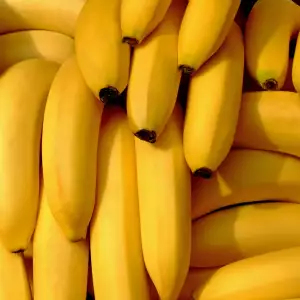
Temperature control: Bananas are a fruit that can lower both the physical and emotional temperature of expectant mothers.
Seasonal affective disorder: Bananas can help those suffering from this because they contain natural ingredients to improve the mood, such as the hormone of happiness - tryptophan.
Tobacco control: Bananas can also help people trying to quit smoking. Bananas contain vitamins B6, B12, potassium and magnesium, which help the body recover from the devastating effects of nicotine.
Stress: Potassium is a vital mineral, which helps normalize the heartbeat, sends oxygen to the brain and regulates body fluid balance.
Risk of stroke: bananas as part of a regular diet can cut the risk of heart attacks by nearly 40 percent.
Dangers of bananas
Like almost every food, bananas hide certain health risks. Two types of allergies to bananas exist. The first is the so-called Oral Allergy Syndrome, which causes itching and swelling in the mouth and throat for about an hour after eating the fruit. The second is related to latex allergy and urticaria causes and has the symptoms of serious gastrointestinal diseases.
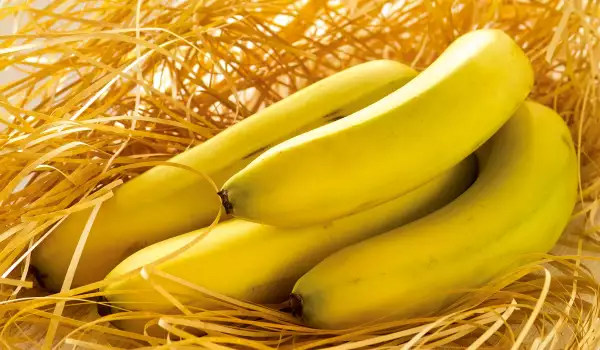


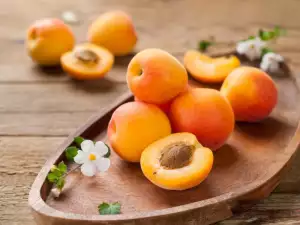

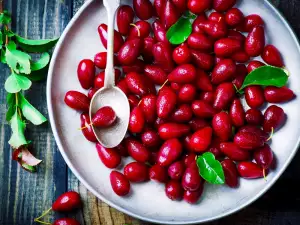

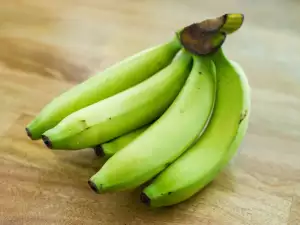



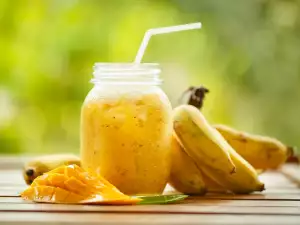







Comments